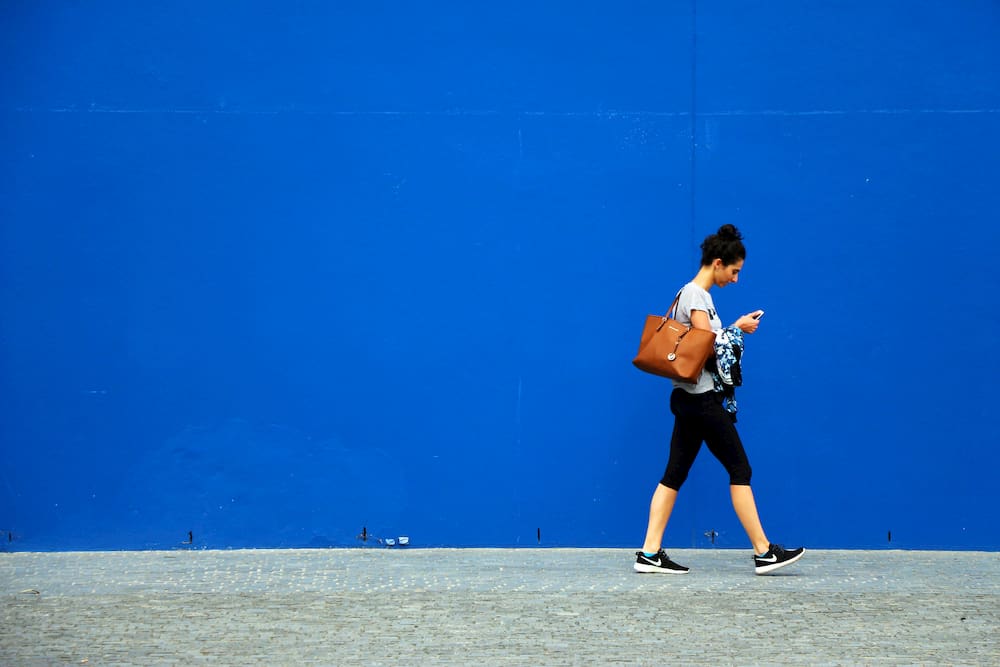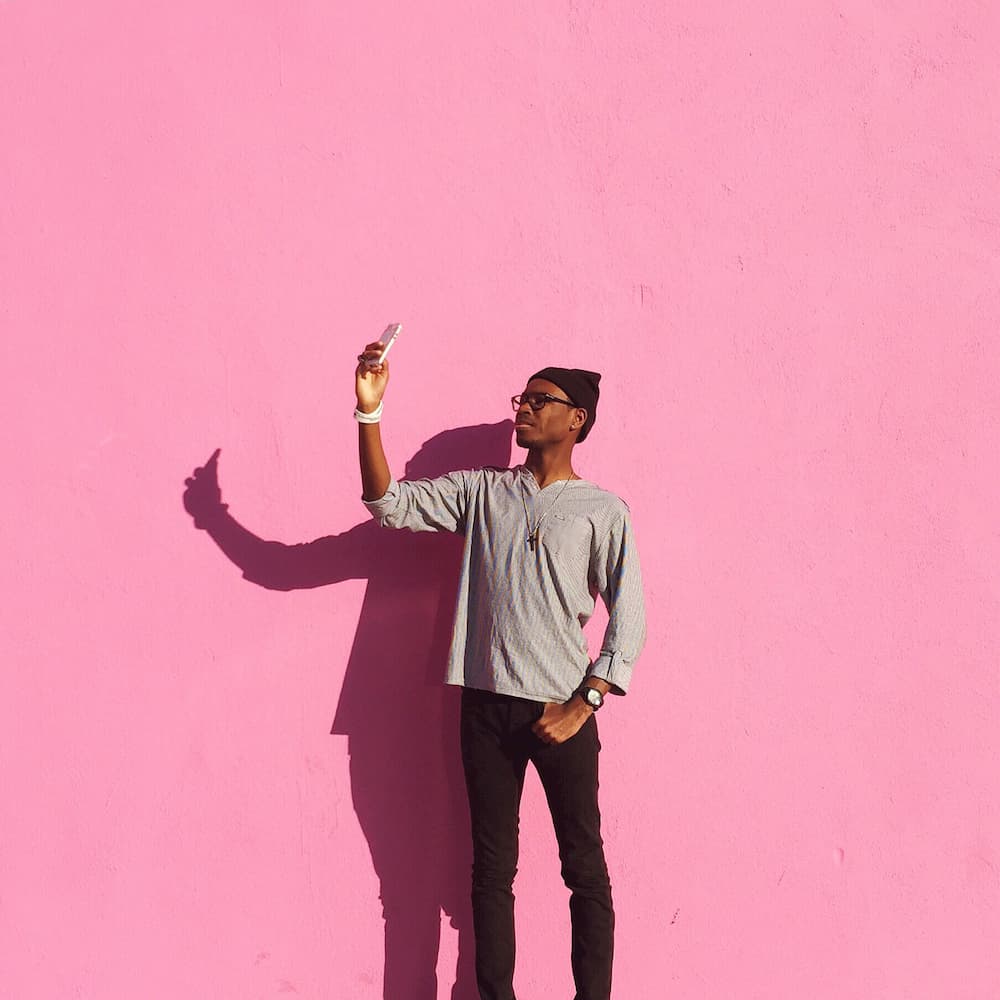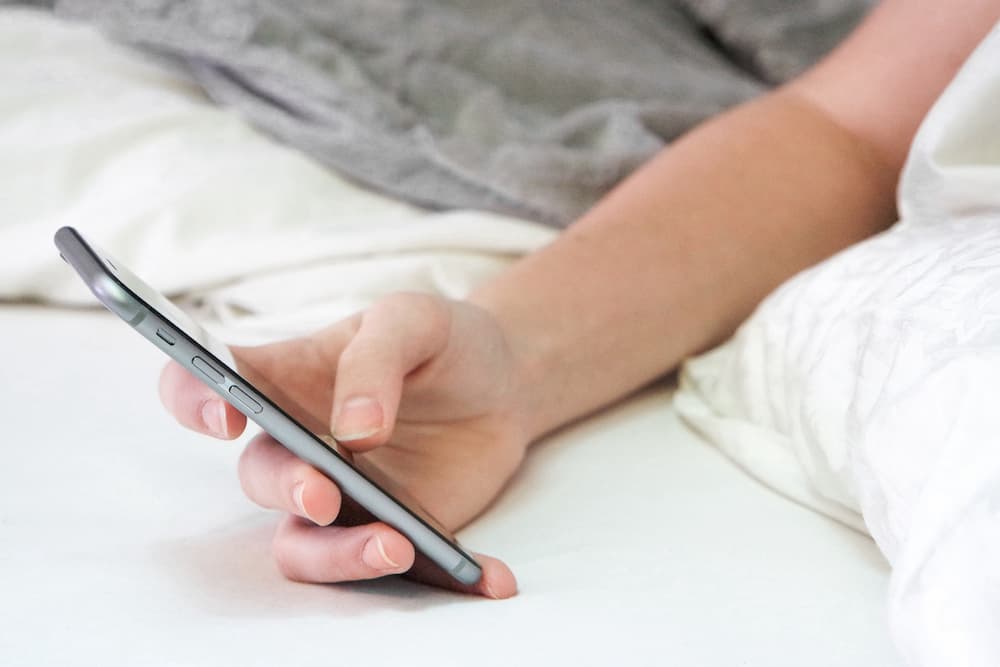
DISCLAIMER: Rules, regulations, and science about the UK pandemic may have changed since this article was written in April 2020, for updated news visit the World Health Organisation or the NHS website.
Our Virtual Reality
Social media has been part of the fabric of our society for some time now, and it’s hard to overstate just how much it has impacted our daily lives. For many of us, the world before social media seems like a distant memory. Millennials’ adolescence years were widely influenced by the blooming of this new form of online interaction (through platforms such as early Facebook or MySpace), but for Gen Z social media is no discovery – it’s an innate part of their social lives and identities. Across the world, we spend an average of 144 minutes a day browsing social media [1], an amount of time that only increases year on year. Instagram, Twitter, Snapchat, TikTok… social media is constantly evolving, commanding us to catch up and stay in the loop. It’s exciting, entertaining, illuminating…and frankly, exhausting.
For some, social media is a livelihood. For others, it provides a distraction. It can be a place of business, a way to form relationships, a space to learn, and perhaps most importantly, an endless supply of cats pulling funny faces. We get out of it what we put into it. It’s a reflection of us, as individuals and as a society. So when someone asks whether social media is good or bad, it’s difficult to give a firm answer. But it’s no secret: many people are cutting down on their social media usage in order to improve their mental health. Perhaps this is a good idea for the truly app addicted, but would it really benefit all of us to step back from the barrage of favourites, follows and friend lists? Let’s take a look.

Human Connection
Social media is intended to be … well, social. It’s meant to be able to connect families, friends and even total strangers. Communities of people spread across the world can talk to each other at any time, from anywhere. Grandparents can video call their grandchildren from across continents. We can keep in touch with old friends we haven’t seen in years. We can share our ideas, our visions, our art. It allows us to reach people in a way that would have been impossible a couple of decades ago.
Social media seems all the more vital during lock down. When we can’t connect with our friends and family in person, social media allows us to see their faces, to chat to them whenever we want, to get a glimpse into their lives when we can’t visit them. It can be our window into the wider world when we need it most.
It’s clear that social media can be a force for good, particularly in our current situation. Humans are social animals, so being able to connect with our loved ones is essential for our well being. But that doesn’t mean social media can’t have negative effects on our mental health.
Instagram vs Reality
Being self conscious isn’t necessarily a bad thing. It helps to know yourself, to be able to recognise your thoughts and behaviors. We all have images of ourselves in our minds, some of which we want to promote and some we want to keep private. We like to have some control in how we come across to others, but in the real world we don’t always have that luxury. Sometimes we have bad hair days, and how many of us look our best during the morning commute?
On social media, it’s different. Nobody has to see you at your worst, or even on an average day. In fact, social media allows you to project a tailored image of your best looks and moments. It’s a presentation of yourself that for once is entirely within your control. So it’s easy to look at the lives of Instagram influencers and think: wow, they do nothing but look gorgeous, eat at fancy restaurants and travel the world! Even more grounded social media profiles are cherry picked. Ever scrolled through your feed and thought: God, why are all my friends having a better life than I am?
Of course, it’s not representative of their real lives. It’s not that people on social media are lying (although of course some do) – it’s just you don’t see their unromantic daily routine, or the moments in which they aren’t doing anything exciting or don’t look Instagram perfect. But if we aren’t interacting with these people face to face regularly, their social media profiles are the only representations of them we have. We begin to compare our own lives (which we know in full) to the social media profiles of others, which are curated snapshots. It’s a recipe for low self esteem and Facebook envy!

FOMO
Ever heard the word ‘FOMO’? It’s an acronym for ‘Fear of Missing Out’. The desire to keep up with our social circles is nothing new, but social media amplifies our exposure to events, parties and holidays that we aren’t invited to. It’s another way in which comparison via social media can affect our self esteem.
If you’ve ever taken a break from social media, coming back to it can feel like drowning in a flood of unread messages and status updates. As you’re catching up, you realise all the things you’ve missed while you were gone. For some people, this brings with it a sense of anxiety. I’m losing touch with my friends! In an effort to not feel left behind, FOMO sufferers become obsessed with staying up to date on social media, sometimes resulting in addiction.
FOMO is a good predictor of unhealthy social media usage [2]. The high levels of anxiety it creates can often impair relationships in the FOMO sufferer’s daily lives, and encourages behaviour such as “phubbing”. Phubbing is when face-to-face conversation is snubbed by smartphone usage – for example, looking away from someone’s face while they are speaking to check how many likes your Insta post got. Actual human connection can take a back seat to online representations, with social media ironically damaging your social life.
Screen Glare and Sleep
Checking our phones has become an almost instinctual impulse. When we hear it buzzing with notifications on our bedside table, it’s hard not to reach over. While this constant stimuli may provide a pleasant distraction in the daytime, it’s a disruptor of sleep in the night time. Modern smartphone screens, alongside our inability to resist checking our apps every spare minute, could be having a negative effect on our quality of rest.
For millions of years, the human brain associated darkness with sleep. Biologically, we still do. So staring at bright, glowing screens all evening makes it difficult for our body to switch into sleep mode. If you’ve ever unlocked your phone in the middle of the night, you’ll know how piercing that glare really is! Studies have shown that smartphone usage around bedtime or at night can have a negative effect on quality of sleep, including restlessness, awakenings and insomnia [3]. As sleep is so important for both physical and mental health, this disruption can cause all kinds of issues in waking life, such as concentration issues and fatigue. It’s not just the bright light, either. Having a source of constant stimuli an arm’s reach away, tempting you with notifications – it makes it hard to leave the day behind and just focus on drifting off.

A Healthy Approach To Social Media
After looking at the negative ways in which social media can affect our mental health, should we stop using it entirely? For many of us, the answer is no. The ability to connect with family and friends, particularly during lockdown, is too valuable to pass up. It’s a convenient way to keep in contact with people, to hear their voices and see their faces. It’s a source of inspiration, of entertainment and of course, memes.
Social media is a tool, and we can choose how we use it. Here are some healthier ways to approach social media if you feel it is having a negative effect on your mental health.
1. Cut down on time spent browsing social media sites – limit yourself to a set amount of time per day, or slowly reduce use over time.
2. Remember that social media profiles don’t always represent reality – try to avoid comparing your life to manufactured posts.
3. Primarily use messenger apps and video calls to keep in touch with family and friends, rather than browsing feed content.
4. Set aside some time every day for activities away from your smartphone, computer or tablet.
5. Lower screen brightness or download add ons that reduce glare.
6. Turn off your phone around bedtime, or put it on silent.
For other ways to improve your mental health during lockdown, check out ‘Self Isolating? 6 Ways to Improve Your Well Being’.
Sources
- Daily Time Spent On Social Networking by Internet Users Worldwide from 2012 to 2019 | Statista.com
- Fear of Missing Out as a Predictor of Problematic Social Media Use and Phubbing Behavior among Flemish Adolescents | PubMed
- Impact of Adolescents’ Screen Time and Nocturnal Mobile Phone-Related Awakenings on Sleep and General Health Symptoms: A Prospective Cohort Study | PubMed
Further Reading
- Social Media And Mental Health | YoungMinds
- Social Media | Mental Health Foundation
- Social Media Role During Coronavirus | Statista.com
- Mental Health Services | NHS







